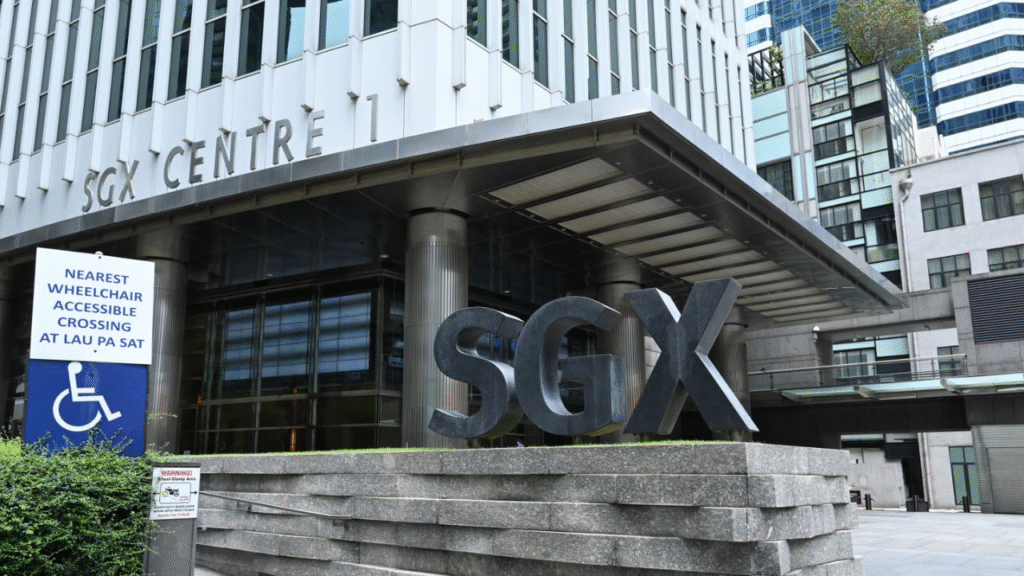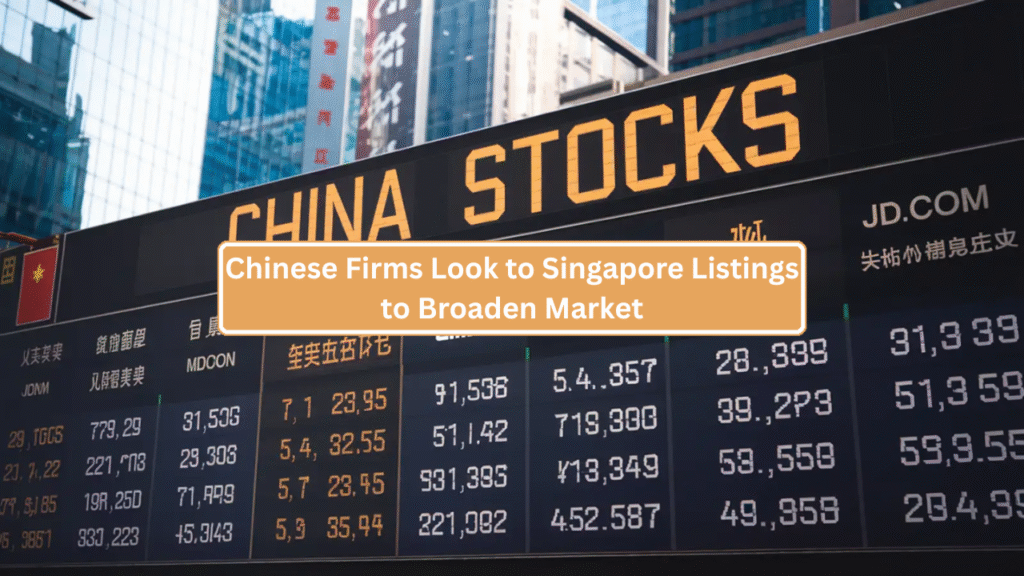Amid intensifying trade tensions between China and the United States, a growing number of Chinese and Hong Kong-based companies are considering listings on the Singapore Exchange (SGX) to diversify their market presence and mitigate geopolitical risks, according to a Reuters report.
Strategic Shift Towards Singapore
At least five firms from sectors such as energy, healthcare, and biotechnology are exploring initial public offerings (IPOs), dual listings, or share placements on SGX over the next 12 to 18 months. This move is seen as a strategic effort to tap into Southeast Asian markets and reduce reliance on Western capital markets, which have become increasingly volatile due to the ongoing trade war.
Traditionally, Chinese companies have favored listings in Hong Kong due to its proximity and established financial infrastructure. However, the escalating trade dispute and associated tariffs have prompted firms to seek alternative venues. Singapore’s political stability, robust legal framework, and strategic location make it an attractive option for companies aiming to expand their global footprint, according to ThinkChina.
Singapore’s Initiatives to Attract Listings

In response to the global shift, Singapore has introduced several measures to enhance its appeal as a listing destination. In May 2025, the Monetary Authority of Singapore (MAS) proposed easing listing requirements, including eliminating the need for third-party attestation of profit forecasts and reducing disclosure obligations for directors’ competing businesses. These changes aim to streamline the listing process and attract high-growth companies, according to ASEAN Briefing and Reuters.
Additionally, Singapore has implemented financial incentives such as a 20% corporate tax rebate for new and secondary listings and a S$5 billion investment program to boost domestic stocks. These initiatives are part of a broader strategy to revitalize the SGX, which has seen a decline in new listings in recent years.
Notable Chinese Entrants
Several prominent Chinese companies have already made moves to list in Singapore. Electric vehicle manufacturer Nio Inc. completed a secondary listing on SGX in May 2022, making it the first company to be listed on three exchanges: the United States, Hong Kong, and Singapore, as reported by China Daily.
Similarly, fashion retailer Shein relocated its global headquarters to Singapore in 2021, signaling a strategic shift to align more closely with Southeast Asian markets. These moves underscore the growing importance of Singapore as a hub for Chinese companies seeking to mitigate geopolitical risks and access new markets, as noted by ThinkChina and ASEAN Briefing.
Challenges and Considerations
Despite Singapore’s efforts to attract Chinese listings, challenges remain. The SGX is relatively small compared to other major exchanges, with lower liquidity and stricter regulatory requirements. These factors may deter some companies from choosing Singapore over more established markets like Hong Kong or New York, as pointed out by ASEAN Briefing and ThinkChina.
Moreover, while Singapore offers a neutral ground amid geopolitical tensions, companies must navigate the complexities of operating in a different regulatory environment and building investor confidence in a new market.
Future Outlook
As trade tensions persist, Singapore is poised to play an increasingly significant role in the global financial landscape. By offering a stable and business-friendly environment, coupled with proactive measures to attract foreign listings, Singapore presents a viable alternative for Chinese companies seeking to diversify their market exposure.
For more information on listing requirements and incentives, interested parties can visit the Monetary Authority of Singapore (MAS) and the Singapore Exchange (SGX) websites.




